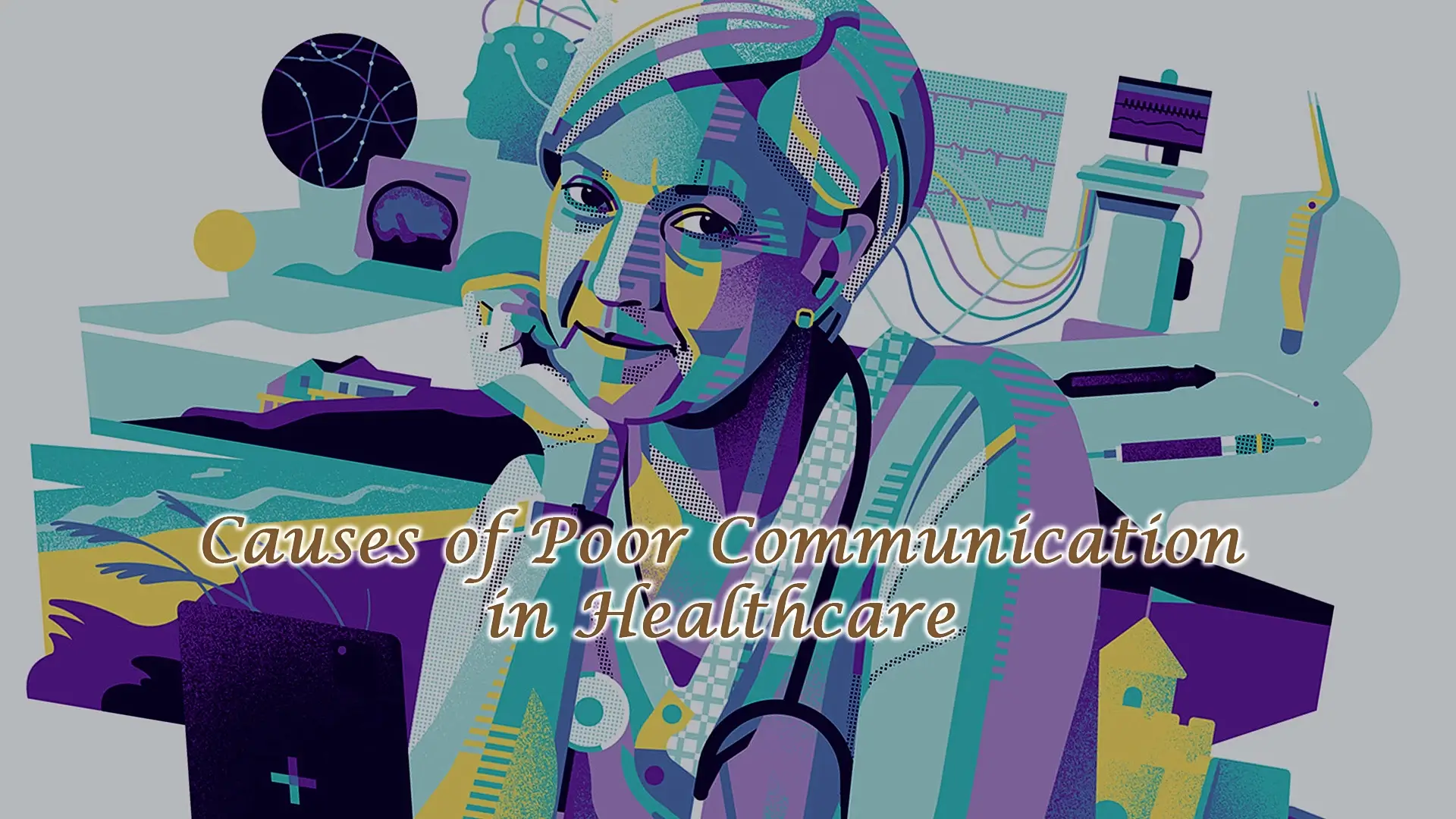Effective communication is the foundation of high-quality healthcare, facilitating accurate diagnosis, patient satisfaction, and successful treatment outcomes. However, poor communication in healthcare can lead to medical errors, decreased patient satisfaction, and compromised health outcomes. In this article, we will explore the causes of poor communication in healthcare and their impact on patient care.
Poor communication in healthcare can manifest in many forms, from misunderstandings between healthcare professionals to inadequate information exchange between providers and patients. Addressing the root causes of these communication breakdowns is essential for improving the overall quality of care and patient safety. By understanding the key factors that contribute to ineffective communication, healthcare organizations can implement strategies to enhance communication and collaboration within their teams.
Causes of Poor Communication in Healthcare
- Time Constraints: Healthcare professionals often face tight schedules and high patient volumes, leaving limited time for thorough communication with colleagues and patients. Rushed consultations may result in missed information, misunderstandings, or incomplete patient histories.
- Hierarchy and Power Dynamics: Traditional hierarchies within healthcare settings can impede open communication. Nurses, for instance, may be hesitant to question a physician’s decisions, even when they have concerns about patient care. This reluctance can lead to unaddressed issues and potential errors.
- Cultural and Language Barriers: Patients and providers may come from diverse cultural backgrounds, leading to differences in language, values, and expectations. Language barriers can impede clear communication, making it challenging for patients to understand their diagnosis, treatment options, and care instructions.
- Lack of Interprofessional Collaboration: Effective patient care often requires collaboration among a team of healthcare professionals, including doctors, nurses, pharmacists, and other specialists. Poor communication between these professionals can lead to fragmented care and gaps in treatment plans.
- Insufficient Training: Healthcare professionals may receive minimal training on effective communication skills during their education and training. This lack of preparation can lead to challenges in conveying complex medical information in a clear and understandable manner.
- Technological Issues: While electronic health records (EHRs) and other digital tools can enhance communication, they can also pose challenges. Inconsistent data entry, system incompatibilities, and technical glitches can hinder information exchange between providers.
- Emotional and Psychological Factors: Healthcare can be emotionally demanding for both providers and patients. Stress, fatigue, and burnout can impact healthcare professionals’ ability to communicate effectively. Patients may also struggle with anxiety or fear, affecting their comprehension and ability to ask questions.
- Lack of Feedback and Follow-Up: Without proper feedback mechanisms, healthcare providers may not be aware of how their communication is perceived by patients or colleagues. This lack of awareness can perpetuate ineffective communication habits.
Impact of Poor Communication in Healthcare
- Medical Errors: Misunderstandings and miscommunication can lead to medical errors, such as incorrect diagnoses, medication errors, and inappropriate treatment plans. These errors can have serious consequences for patient health and safety.
- Patient Dissatisfaction: Poor communication can result in patients feeling unheard, uninformed, and dissatisfied with their care. This dissatisfaction can lead to decreased trust in healthcare providers and reluctance to seek medical care when needed.
- Reduced Adherence to Treatment Plans: When patients do not fully understand their treatment plans, they may be less likely to adhere to prescribed medications or follow-up appointments. This non-adherence can hinder recovery and exacerbate health issues.
- Inefficiency and Increased Costs: Inefficient communication can lead to duplication of services, unnecessary tests, and longer hospital stays. These inefficiencies can drive up healthcare costs for both patients and providers.

Strategies for Improving Communication in Healthcare
- Training and Education: Healthcare professionals should receive training in effective communication skills, including active listening, empathy, and clear language. Continuous education and feedback can help providers refine their communication practices.
- Cultural Competence: Healthcare providers should be trained in cultural competence to better understand and respect patients’ diverse backgrounds. This training can improve provider-patient interactions and enhance the quality of care.
- Team Collaboration: Encouraging open dialogue and collaboration among healthcare teams can improve information sharing and patient outcomes. Interprofessional training and team-building activities can foster a culture of mutual respect and cooperation.
- Patient-Centered Communication: Providers should prioritize patient-centered communication by involving patients in their care decisions and encouraging questions and feedback. Clear, jargon-free explanations can help patients understand their options and make informed decisions.
- Utilizing Technology Wisely: Healthcare organizations should invest in interoperable systems and user-friendly tools that facilitate seamless information exchange. Providers should be trained to use these tools effectively to enhance communication.
- Feedback and Monitoring: Regularly collecting feedback from patients and healthcare professionals can help identify areas for improvement in communication practices. Monitoring communication quality can guide targeted interventions and training.
And so
Poor communication in healthcare is a multifaceted issue with significant implications for patient safety and satisfaction. By addressing the causes of poor communication and implementing strategies to improve it, healthcare organizations can enhance the quality of care and achieve better outcomes for patients. Emphasizing open dialogue, cultural competence, and patient-centered communication can pave the way for a more effective and compassionate healthcare system.




The strategies for improving communication in healthcare are practical and well thought out.
Thank you for shedding light on the impact of poor communication on medical errors and patient dissatisfaction.
The mention of insufficient training in communication during medical education is spot on.
This article perfectly captures the importance of addressing poor communication in healthcare.